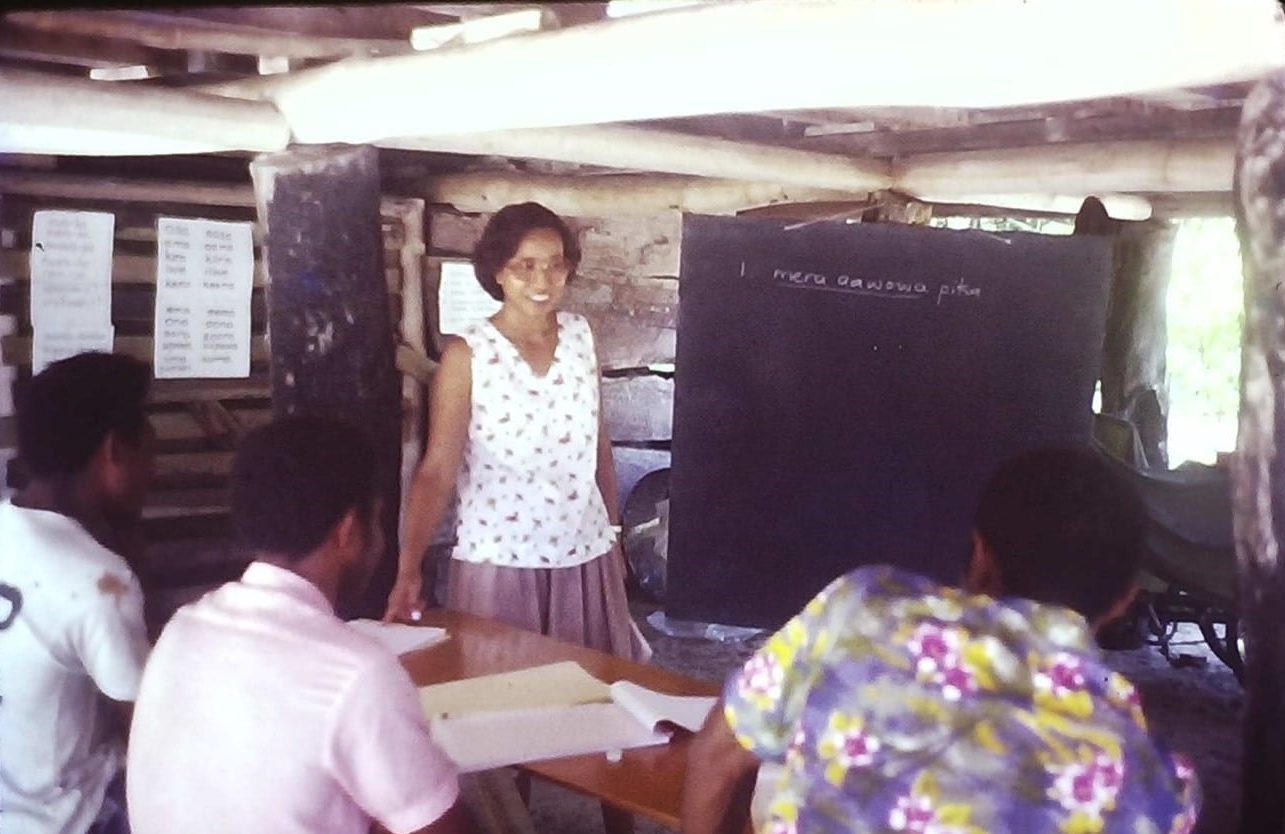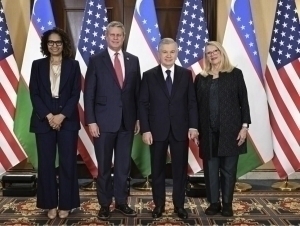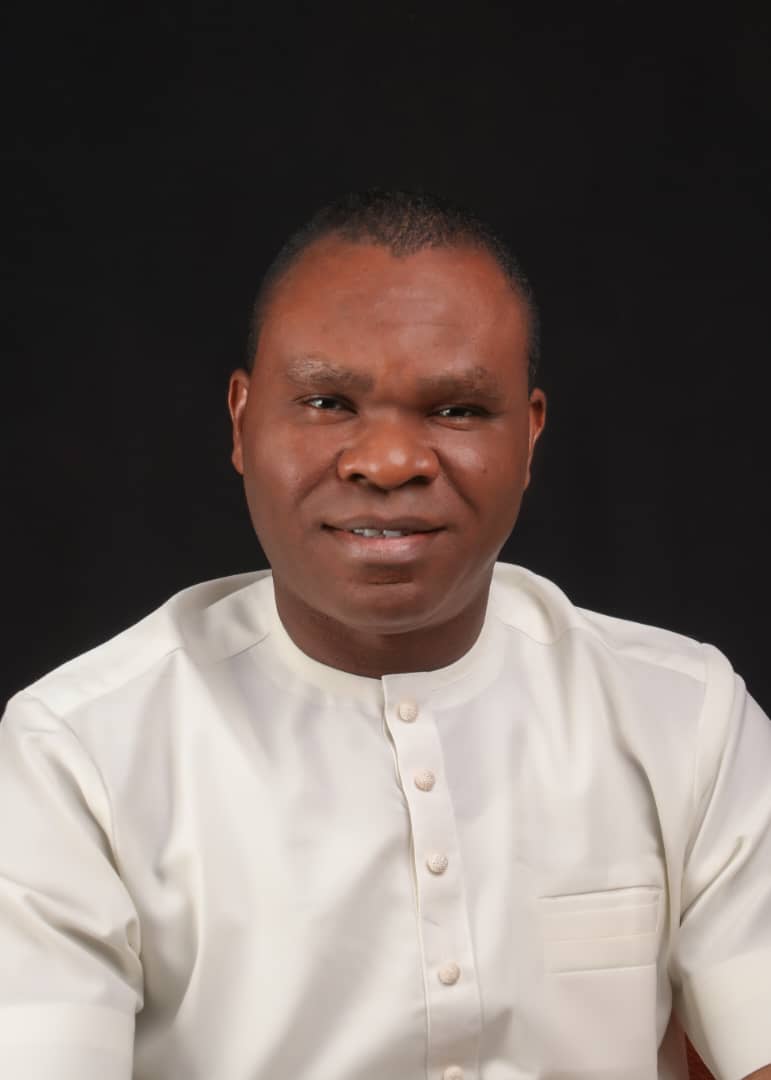Copyright saltandlight

This December, Kwan Poh San turns 81. More than half her life – 45 years – was dedicated to the mission field where she was a Bible translator. Those were not decades spent solely behind typewriters or computers. Instead, Ms Kwan lived amongst the locals, soaking up their culture to better translate God’s Word into their vernacular. She has bathed in streams used by pigs, stomped on a snake, and, once, was even peed on by a lizard. She travelled by bus, truck, train, plane, motorbike and horse to check on translations. Once in a storm, she saw Jesus standing over her radio antenna, protecting it and her house from lightning strikes. Her body bears the marks of her days on the mission field – lungs that only function at 60% capacity because of long-term untreated asthma, a permanently blackened toe crushed during a motorcycle accident, a scar on her thumb from a slip of a machete that cut so deep, bone could be seen. After 18 years, Ms Kwan managed to translate the entire New Testament into Mauwake, one of the more than 800 languages in Papua New Guinea. Salt&Light met up with the octogenarian recently to talk about her years in the island country. Small beginnings Ms Kwan is one of eight children of a secondary wife. Because her father had two families to maintain – he had another five children with his primary wife – there was never enough in either household. Her parents were of another religion, but they sent Ms Kwan and her sisters to a mission school because it was near their home. “That was how we heard the Gospel,” said Ms Kwan. At 13, she raised her hand during an altar call in school and gave her life to Jesus. “We were going through a difficult time. My father’s business had collapsed. We were so broke and I was going through a terrible time relationship-wise with my siblings, especially with my older brother. “I was listening to the sermon when I felt the weight of sin. This was after years of listening to the Gospel, especially at Chapels on Friday.” At 15, invited by friends, she joined Fairfield Methodist Church Youth Fellowship. Attending every week came at no small cost to the young Ms Kwan. By then, Ms Kwan’s older sister was working as a nurse and living at the nurses’ hostel. All the housework had fallen to Ms Kwan. “I work fast and I was a willing worker. I resented it a lot. Throughout my teenage years, I was an angry person. “My mother objected that I left for a few hours on Saturday afternoons to go to Youth Fellowship because that was the time I should be cooking dinner.” Though she did not know it then, those years running the household – cooking, cleaning, doing the laundry, responsible for minor repairs and managing the finances – were excellent training for her to live on her own as a missionary. A sure call After secondary school, Ms Kwan became a teacher. It was a natural choice for a young woman who had already been giving English tuition to 18-year-olds to see herself through school. For 10 years, she taught English, Chinese and Malay. During that time, she was in a cell group of four women. Two were called to full-time ministry, among them the late Christina Gwee Choo Neo who would go on to found The Hiding Place with her husband the late Pastor Philip Chan. “Everyone in church told me: ‘We feel that God is calling you. You will be the next one.’” It was not till she was at a Keswick Convention in 1972 that she heard the call personally, “The speaker was saying, ‘Some of you are called to go straight to the mission field and some of you are called to be like Mary, sitting at the feet of Jesus.’ “I felt I hadn’t sat at the feet of Jesus to learn a lot, so I decided to go to Bible college.” Ms Kwan was 28 when she enrolled in Singapore Bible College (SBC) to earn a Bachelor in Theology. “When I was in the second year, the Lord confirmed to me that I should be a Bible translator.” For many years, Ms Kwan had had a heart for missions and had been praying for missionaries. But it was at SBC that she learnt about Wycliffe Bible Translators, having chanced upon their magazine at the library there. Many people had also told her that she was good at languages. Today, Ms Kwan is fluent in seven languages – English, Mandarin, Malay, Mauwake, Pidgin English, Hebrew and Greek – as well as dialects Cantonese, Teochew and Hokkien. But back then, she was struggling with Greek as a student. As she prayed about it, she felt God call her to Wycliffe. When she continued praying about the call, Isaiah 55:10-11 came to her again and again, telling her that her future ministry would be with God’s Word. Eventually, it was a teacher whom she respected tremendously who confirmed the call. The teacher told Ms Kwan: “You seem to be able to handle languages so easily. Perhaps the Lord will make use of you with that talent. I have been praying for you for these few months.” After four years at SBC, Ms Kwan joined Wycliffe and left Singapore to be a Bible translator. The ultimate destination As part of her preparation, Ms Kwan had to go to Papua New Guinea for jungle camp training. Growing up, she had spent many a happy weekend visiting her aunt in the kampung (village) that would later become Bishan estate. “I love nature, the outdoor life. I was pretty wild when I was young, being sandwiched between two brothers. “I was hardly still. I would run up and down stairs. I was a school athlete and I was in the netball team.” Jungle training brought back those memories of old. “To me, it was fun. I have always liked the outdoor life. One day, I was handling this sharp machete, chopping and testing the knife. The director was watching me and smiling.” At the training, she met Finnish Liisa Järvinen. For safety reasons, single women had to have partners in the field. “I asked the Lord to confirm that we should be partners by getting Liisa to propose the idea.” When Liisa suggested that they form a team, it was an answer to Ms Kwan’s prayers. Because Liisa was supposed to serve in Papua New Guinea and Ms Kwan knew she was called to serve in Asia, they remained in Papua New Guinea and was assigned to translate the Bible for the Mauwake people. More than words can say Bible translation requires more than merely mastering the foreign language and re-writing the Bible in it because there is often no like for like between languages. For example, Mauwake is a very visual language that has few words for abstract concepts. So they have no word for “forgiveness”. “When you talk about ordinary life, you don’t talk about all these abstract concepts. You have to immerse yourself in their culture. “So in the quiet of the evening, we would sit around the fire. The fire is to keep the mosquitoes away. “We chat with the locals. It really takes a lot of inquiring, being patient. Sit with them, chat with them, listen to their stories. When they talk to each other, what do they say? So it’s an 18-hour job.” Ms Kwan would discover that the Mauwake word for “sin” is the word “heavy”. So the team translated “forgiveness” as “take away his heaviness”. To translate the word “believe”, which also has no equivalent in Mauwake, more sleuth work was needed. “So we ask, ‘If someone comes and gives you a promise and you say you believe in him, what do you say?’” It turns out that the Mauwake people say they “hold his talk” to express the idea of believing someone. So, for them, to believe in Jesus is to “hold Jesus’ talk”. After each section of the Bible is translated, it is checked and corrected through a series of discussions with the team. Then the section is taken to the villages to be read to see if it sounds natural to the native speakers. There are as many as 10 steps involved in the process. That is how translation work can take decades. Beyond translation Beyond translation work, Ms Kwan and Liisa also conducted literacy classes so the locals could read the Bible when it was translated. They read the Bible to the people as well because there were some who remained illiterate despite best efforts. Many Mauwake people then were animistic even though, years ago, Lutheran and Catholic missionaries had spread the Gospel to them. “Some hardly go to church. Some go but right after that, they would go to their shamans. It was our job to teach them deeper truths so they would turn their trust to God.” On Saturdays, Ms Kwan and Liisa would go to the weekend market where people from different Mauwake-speaking villages would gather. They would then distribute portions of the translated Bible to the people. In the ’80s, on top of the translation work, Ms Kwan became a translation consultant while Liisa was a linguistic consultant. Training local translators and other translators became part of their duty as well. Culture shock In her book, Called by Grace, Led by Grace, Ms Kwan talked about how others have commended her for her ability to assimilate into different cultures, calling her a “cultural chameleon”. But Ms Kwan herself feels that she had not always been successful in embracing other cultures. “I struggle against the asking culture. They don’t feel shy about going to a relative and asking for sugar or a tin of fish. “Even though we were not well off, in the village we were one of the richest. So aside from the village store where you had to pay, they would come to us and ask us.” Many years later, Ms Kwan learnt that when a Mauwake person asked someone for something, they were “putting themselves in your debt”. It was humility, not greed, behind the request. So they would not ask just anyone, only the ones whom they trusted. Because they were strangers, for Ms Kwan and Liisa to be allowed to live in the village, they had to be adopted by the village headman’s family. The women were, in essence, family to the villagers, which was why they were not afraid to ask them for things. “One big thing when we were living with the Mauwake was that I didn’t feel myself as loving. Every time they come to get a tin of fish, I will grumble at them and or when they borrow money, I will remind them, ’You haven’t paid us paid back the previous loan.’ “I feel that I was not loving enough. God loves me so much. When I’m with the people, I should be showing love. I struggled with this issue of loving people. This is their culture, and yet you cannot accept their culture.” The Word still wows In 2001, Ms Kwan left Papua New Guinea, a place she had called home for 24 years. By then, she was in her 50s. No one would have blamed her if she had retired. Instead, she spent the next 20 years in North Asia working as a translation consultant. In 2019, she returned to Singapore but still continued her work. She only retired two weeks before the Salt&Light interview. “As the Lord has given me the tasks, I have done the tasks.” In the course of nearly 50 years as a Bible translator, Ms Kwan must have read through the Bible hundreds of times. Asked if she knows it all by heart, she said: “I must have checked Luke’s Gospel umpteenth times, but there will be still times when suddenly a word or a concept springs up at me – my ‘wow’ moment. “So it’s still fresh, the Holy Spirit is still working.” To find out more about Kwan Poh San’s time in Papua New Guinea, read her book Called by Grace, Led by Grace. RELATED STORIES



